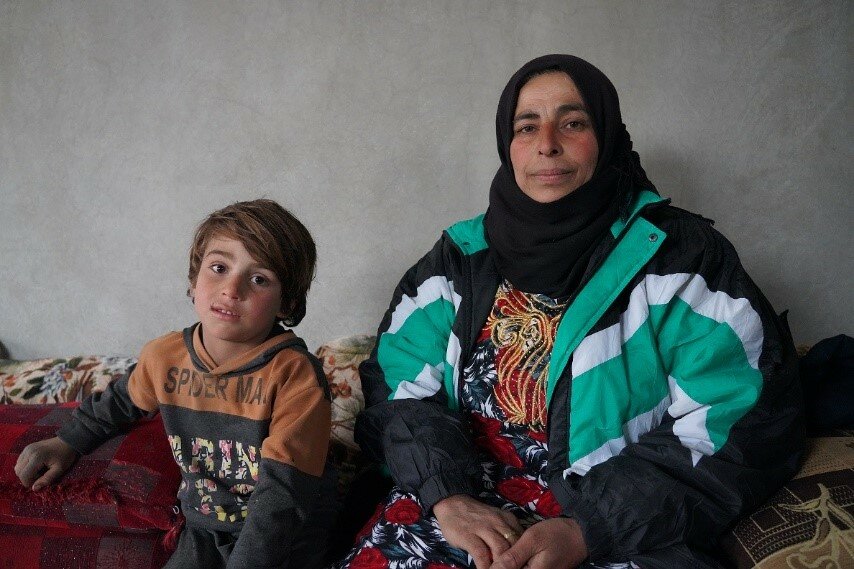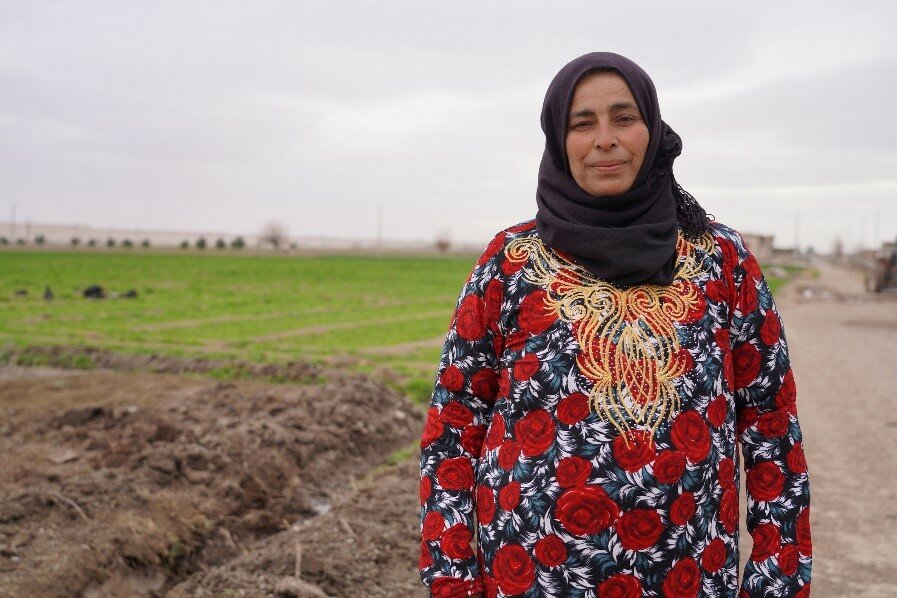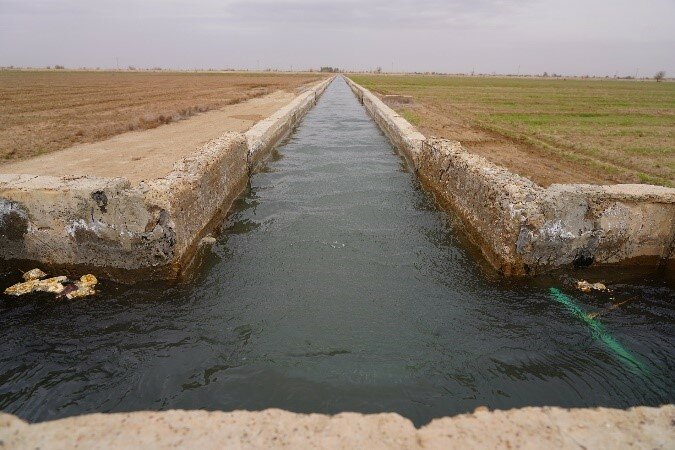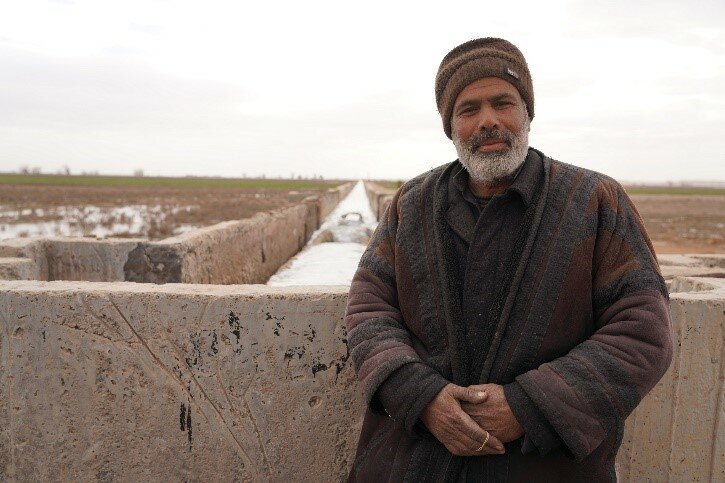Syria: UN agencies restore water and harvests to a community on the brink

Seated on the floor of her home in rural Deir Ezzor, Syria, Rama’s face lights up when she talks about water.
For the past seven years, she's planted seeds, dug deeper into the earth in search of water, driven — like so many of her fellow Syrians — by the hope the life she had before might return.
This time around, her crops will grow, thanks to a joint initiative of the World Food Programme and its UN sister agency, the Food and Agriculture Organization (FAO).
'We tried to plant wheat with the salty water, but it didn’t work. We were hardly managing. Now we have clean water we will be able to grow wheat for the first time'
Her family won’t need to worry about food anymore. The fields are green again.
This mother of ten and grandmother of three has a farm to manage, a house to run and is completely dependent on the land to survive.
Vital infrastructure — including irrigation systems — has been destroyed over the past ten years, forcing families across Syria from their farms. Those who stayed faced a daily struggle to keep farms going.
Salty water
Digging for water is harmful to soil and can at best yield extremely salty water. So growing enough food to feed her family has been almost impossible.
“Things are better now because we have water,” she says. “When it started running ,the children wanted to jump in it. It was very joyful for us.”

Rama’s family is one of 6,000 served by WFP and FAO’s Sector 5 project. It has rehabilitated the Sector 5 irrigation system, a vital local infrastructure connecting local farms to flows from the Euphrates. Since December, for the first time in years, families have had access to water close to their homes.
“When we first heard about this project we were in a desperate situation and we were overjoyed at the news,” she says. “I can’t say how we used to survive. We have a big family and water was scarce. I was skeptical at first, but I knew in my heart that everything would work out.”
Today, with water running, she says she’s still in disbelief.

“I want to plant wheat and cotton and I hope we can restore the old days. Vegetables are especially important. We don’t have enough land to grow food and sell it, so we are planning to eat what we produce.
“The water we used to get from the wells was salty. We had to drink it and use it to water our crops. It was our only hope. We tried to plant wheat with the salty water, but it didn’t work. We were hardly managing. Now we have clean water we will be able to grow wheat for the first time.”
'I have never worked; I’ve lived off the land my whole life. The harvest will be in July and we hope all of our food needs will be met'
Farmers in Deir Ezzor tell WFP 2011 was their last great harvest. Fields were seas of green, they say, full of so many summer vegetables - they had enough to feed their families and transport across Syria.
More than 115,000 people lived in the area currently supported by the Sector 5 project. Today only 30,000 people remain and they are struggling to meet their basic needs.
Sector 5 will support families in four villages to irrigate more than 3,500 hectares of land. The influx of fresh water will reduce salinization levels and help families to grow and even sell their own food again.
It will also offer displaced families a powerful incentive to return to their homes, raise livestock and provide fresh and healthy food for their families.

Families like Rama’s who remember the 2011 harvest are hopeful that soon they won’t just have enough to eat for tomorrow, but in the months and years ahead too. Water is an important first step.
One month into the project, Rama’s family and community are already dreaming big. They want to hire workers to help them to plant and harvest crops, and this will provide employment in rural communities where there are few jobs. They talk about opening a small factory where they can once again send food across Syria. But first, they plant, water and wait.
“I’ve lived off the land my whole life. The harvest will be in July and we hope all of our food needs will be met.”
The Sector 5 project is made possible thanks to generous support from the Government of Japan.
